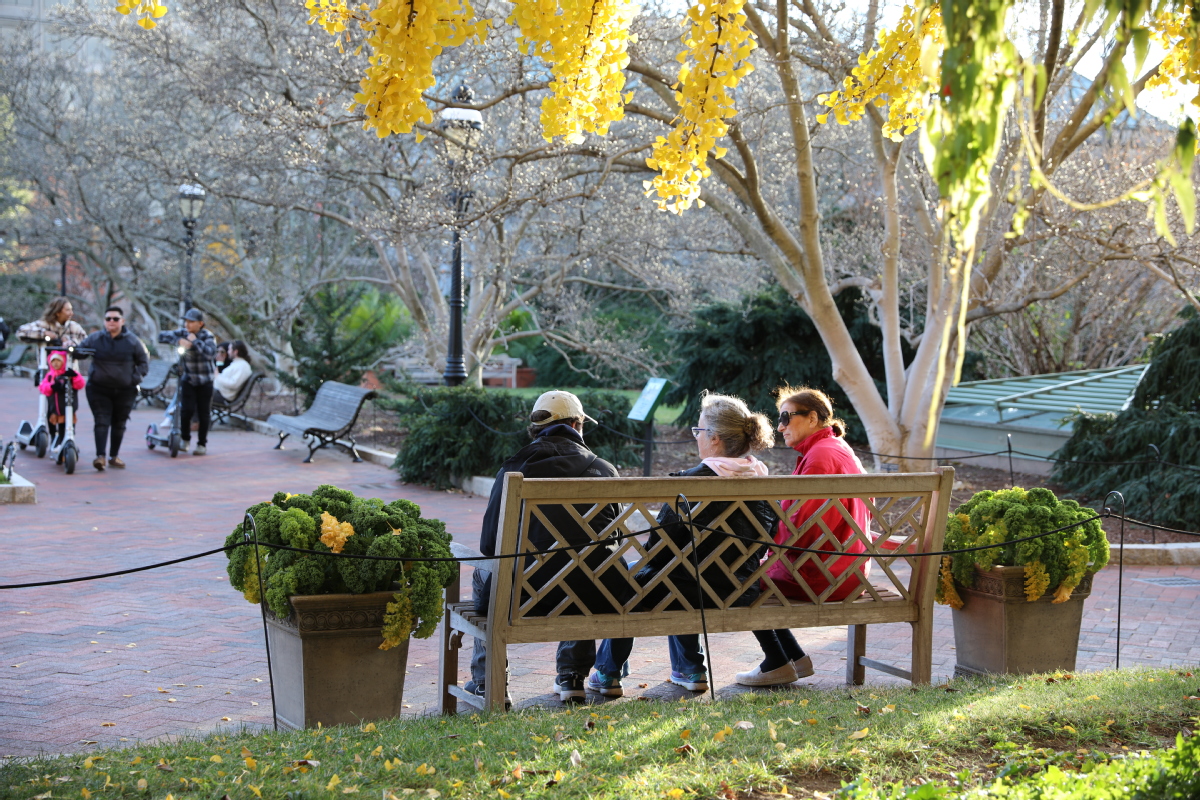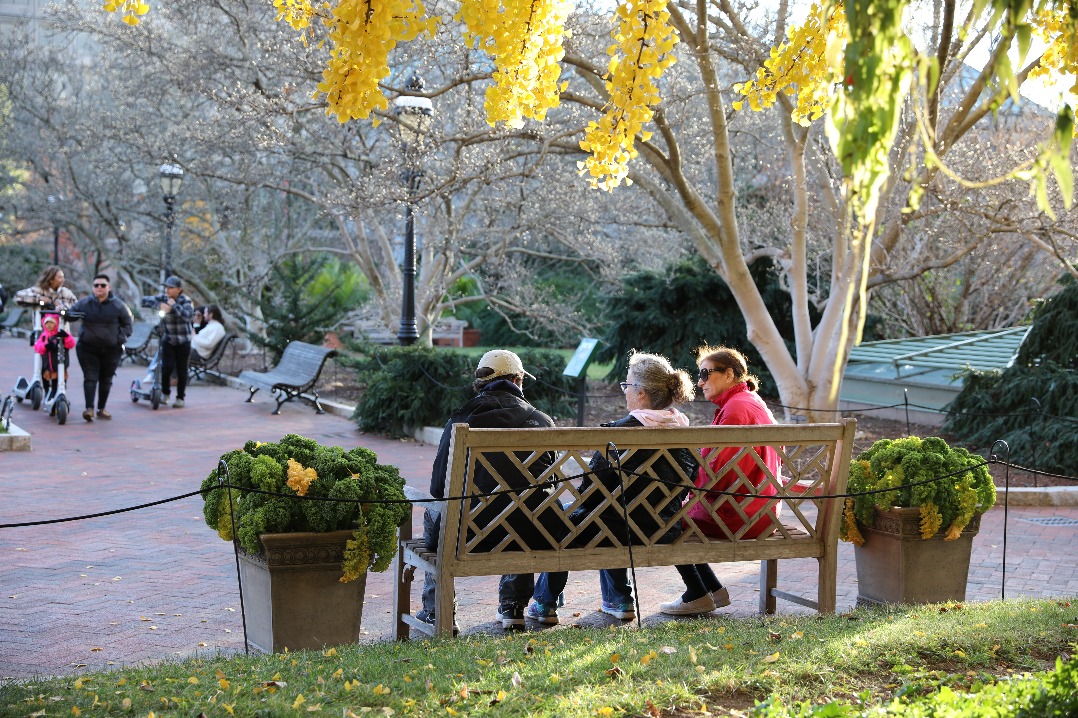Out of nostalgia, it takes a village — again


For a journalist based in the United States, it was haunting to read the news: an 11-year-old boy shot and killed while playing a doorbell prank with friends in Houston a month ago.
As Halloween approaches and children prepare for their playful rounds of "trick or treat", I can't help but worry that such a senseless moment could happen again.
Whether that fear is justified is another matter. What stays with me is a deeper realization: across much of the US, and in many other corners of the world, people are quietly yearning for the sense of safety and belonging they once took for granted.
It was a time when the saying "It takes a village to raise a child "still rang true, when neighbors looked out for one another, and when life itself moved at a slow and steady pace to feel secure.
In the Houston case, the boy and his friends were playing the generations-old game of dingdong ditch, but what should have been harmless fun ended with a devastating bang.
A "village" of familiarity and trust has been replaced by a haven of fear and disconnection.
In China, I remember those "good old times" when we could roam the neighborhood unsupervised, watched by "everyone's mom", while staying outside as long as we wished.
Who, among us, who call ourselves "literary souls", could ever forget the lines from Once, Life Was Slow by Chinese painter and poet Mu Xin (1927-2011)?
The sunlight back then moved slowly,
so did the carts, the horses, the mail —
a lifetime was enough to love just one person.
And who wouldn't be moved by contemporary writer Liang Xiaosheng's tender recollections of neighborhood life in mid-20th-century China — when, as a hungry boy, he would wander next door for lunch because there was nothing to eat at home; when doors along narrow lanes were left ajar; and when everyone knew one another's names, trading gossip and laughter in the courtyard at dusk?
So it is interesting to observe that the US, too, echoes this longing — a nostalgia for what Chinese people fondly call a "free-range childhood".
On Chinese lifestyle-sharing platforms such as Xiaohongshu, or Red Note, and Weibo, China's equivalent to X, millennials remembered running wild in courtyards, alleys and schoolyards, spending hours outdoors, skipping rope, playing hide-and-seek, and kicking shuttlecocks.
They posted fond memories of street vendors steaming soy milk at dawn, of "old courtyard" chats without distraction from phones, of a period when the whole community would keep an eye on every child.
They also reminisced about how Chinese people would "help each other and prevail over difficulties together" — as a Chinese idiom goes — during tough days in the pandemic and earthquakes.
In the US, a recent BuzzFeed post titled "28 things disappearing from society that make people miss the good ol' days" revealed what US people miss most about simpler times — when "kids played outside" and "roamed freely and unsupervised in their neighborhoods, away from adults' eyes".
Constant_Nobody4607, a contributor, said the loss they feel most deeply is the disappearance of the front porch.
"Most houses used to have them. They were a place where family and neighbors would sit and talk," the contributor said. "That particular type of socialization is almost gone."
Other most-missed gems from the "good ol' days" include "doing hobbies just for fun" instead of chasing monetized side hustles; a longing for patience, as "everyone wants instant everything now";and the loss of genuine connection — a time when people engaged in real conversations, face to face, even with strangers.
However, nostalgia often isn't about wanting to go backward; it's about wanting to carry forward what was good.
The Houston tragedy was a stark reminder of what unravels when the threads of a community fray — when a village becomes disconnected, with each resident locked in their cocoons and neighbors no longer looking out for one another, and when fear and suspicion quietly replace familiarity and trust.
The village still exists, but the challenge is that, in many parts of the world, it survives and is more active in the digital realm, where algorithms often replace genuine human connection.
Yet, nostalgia can be more than regret and sorrow. It can be a call for action after retrospection. What US people seem to miss is not the past itself, but the caring and warmth that once bound people together.
In her 1996 book It Takes a Village: And Other Lessons Children Teach Us, former US first lady Hillary Clinton devoted two chapters to ideas that still feel relevant and even more urgent today: "No Family Is an Island" and "The World Is in a Hurry, Children Are Not".
The old village spirit can live again — but only if we relearn the art of noticing, and of caring. In a digital age, that means looking up from our screens as much as looking out for one another online. In this sense, the familiar reminder from US civic life — "When you see something, say something" — could come with a new layer of nuance.
The national slogan that emerged in 2001 following the 9/11 terrorist attacks should not only be meant as a security alert. It should be a call to revitalize mindfulness, to pay attention to one another, to intervene before tragedy takes root.
Whether in Houston, Harvard or Hangzhou, a community is still built the same way: not by cement alone, but by seeing, saying, caring — the human cement that holds people and places in harmony.
One village at a time, perhaps, that will provide the bricks to build a community with a shared future for humanity.
The author is deputy editor-in-chief of China Daily America and chief correspondent in Washington.
Contact the writer at huanxinzhao@chinadailyusa.com

































